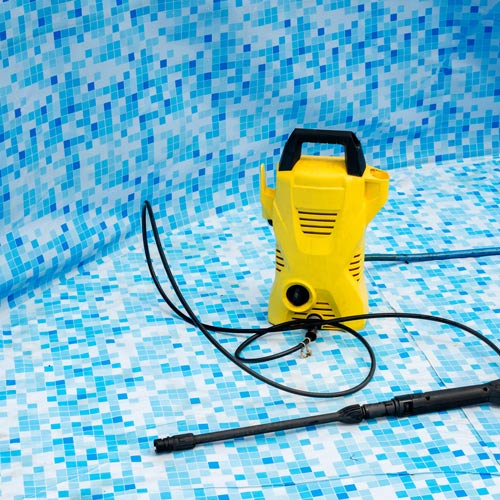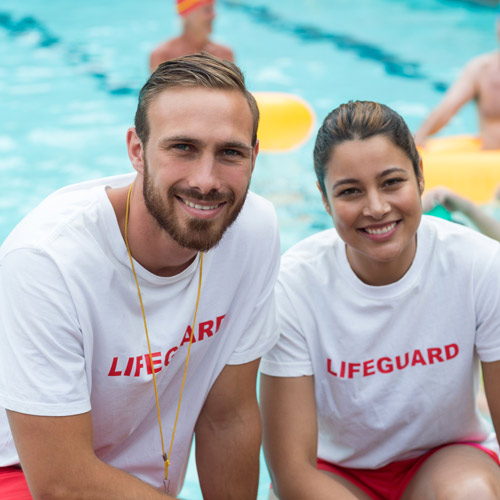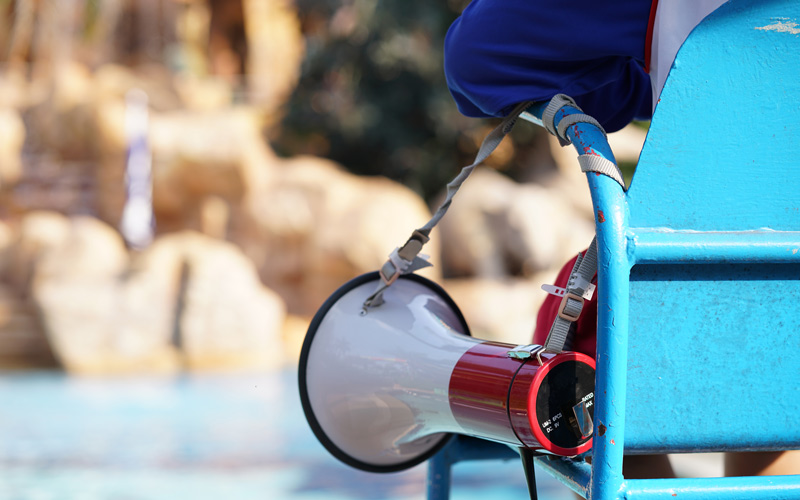Many HOA communities have swimming pools available for member use. It’s one of the best things about living in an HOA, especially during the warmer months. But, part of having a pool is ensuring HOA swimming pool safety.
Rules for HOA Swimming Pool Safety
Although homeowners associations can’t control the pools in individual homes, they can – and are usually obligated to – to promote safety in HOA pools. One way to promote the safety of swimmers and pool goers is to enforce strict rules on pool use and behavior.
Here are some of the top HOA swimming pool rules to have:
- No Running. Running around the pool area, especially in more slippery parts, is a one-way ticket to injury and liability.
- No Diving. Diving is not only unsafe for swimmers but can also create a lot of mess in the pool deck. And no one wants to clean that up!
- No Pushing. Pushing – whether it’s into the pool or just surrounding it – is never a good idea.
- No Swimming Alone. No one’s there to save you if you drown while swimming alone. As such, it’s best to prohibit lone swimmers.
- No Drinking Alcohol in the Pool Area. Drinking alcohol within the pool area should not be allowed to avoid any safety risks.
- No Glass Bottles in the Pool Area. Glass bottles – or glass anything, really – can break easily and injure pool goers.
- No Swimming Under the Influence. Whether it’s drugs or alcohol, swimming under the influence is a big no-no.
- No Electrical Devices in the Pool Area. Anything that has to be plugged into a power source shouldn’t be near the pool area. The last thing anyone wants is to get electrocuted!
While these rules are a good place to start, they’re not completely foolproof and comprehensive. You should tailor your rules according to the type and needs of your community.
Ensuring Pool Safety in HOA

Although rules help ensure safety, you can’t really control the behavior of residents and their guests. You can do some things, though, that would limit the exposure to danger and liability.
1. Post Signs Everywhere
To minimize your HOA’s liability, it’s a good idea to post the rules everywhere. And we mean everywhere. The entrance to the pool, walls leading up to the pool, the pool area – where there are people, there should be signs.
With the space practically covered with signs, it’s hard for swimmers to make the excuse that they “didn’t know” about the rules. In addition to the rules, you should also post instructions that pool goers can follow in emergencies.
2. Send Out Reminders
If the signs aren’t enough, it’s also good to send out reminders to residents. The pool’s closed during the winter months, so they might have forgotten about the rules. Prior to the start of pool season, do a message or email blast. You can also include the rules in the announcement of the pool opening.
3. Clean, Clean, Clean

Cleaning is a boring task, but it must be done. And it’s also a big part of HOA swimming pool safety. If you want to keep pool-goers safe, you should have a clean pool.
Before the start of the pool season, have someone clean the pool area and the pool itself. With the pool closed for about half the year, it will need some care and attention. Make sure everything’s up to code and working as intended.
But your job doesn’t stop once the pool opens. You should also do regular cleaning and maintenance throughout the pool season. Trust us, it’s necessary.
4. Have an Emergency Kit Nearby
Emergencies can happen anytime, so you want to be prepared for it. Apart from emergency instructions posted in the pool area, make sure to keep rescue equipment nearby. These include rescue tubs and life rings. Such equipment should be reserved for emergencies only, so residents shouldn’t use them for their own leisure.
With cell phones now a staple, it might seem silly to still keep a phone in the pool area. But, it can come in really handy during times of crisis. In some places, pool phones are also mandatory, so your HOA might not even have much of a choice. Make it easier for residents to call emergency services, too, by keeping them on speed dial or posting emergency numbers on the phone.
Finally, every HOA pool should have a fully stocked first aid kit. If someone gets injured, they can tend to their wounds using the first aid kit. Oh, and don’t forget to check the kit’s inventory regularly so you can keep it stocked all the time.
5. Close the Pool When Appropriate
Outside of seasonal closures, there are two instances when you should close the pool: at night and during inclement weather. Let us explain why.
A lot of people enjoy night swimming, but it’s generally unsafe. Residents don’t really walk around or spend time near the pool area after dark. So, if something happens, there’s a good chance that no one will see it. Plus, if it’s an outdoor pool and temperatures drop at night, there’s a real risk of hypothermia.
Now, on to inclement weather. This should really explain itself, but not everyone can see why it isn’t a good idea to open the pool when the weather isn’t cooperating. Heavy rains and strong winds are unsafe even if you just stand outside. Just imagine having to go through all of that in a pool.
Weather can be hard to predict with just a glance, though, so you should pay attention to forecasts. Even the clearest of skies can quickly turn gloomy and angry. If you decide to open the pool in the midst of dangerous weather, your HOA might find itself in hot water – pun intended.
Should You Get A Lifeguard on Duty?

Lifeguards can certainly help promote HOA pool safety, but this can be a tricky topic. When you hire a lifeguard to oversee the pool, your HOA is basically pushing the idea that it’s responsible for protecting people’s lives. But the truth is, the HOA isn’t responsible for that. The HOA is only responsible for monitoring the pool.
If you do want to hire a lifeguard, make sure you hire a professional. Don’t just hire a teenager from the neighborhood who’s looking for a summer job. Find someone who’s actually trained for this kind of thing.
The Bottom Line
Pools are fun – you can practice your swimming skills, hang out with friends, or simply cool down on a hot summer day. But, they can also bring a lot of danger and liability for the association. If you want to promote HOA swimming pool safety, don’t forget the advice we’ve provided you here.
You Can Also Read These:
- HOA Landscaping For Spring: Breathing New Life In Your Community’s Natural Resources
- HOA Spring Cleaning: Getting Your Community Spring Ready
- 7 HOA Spring Activities To Welcome The Springtime




